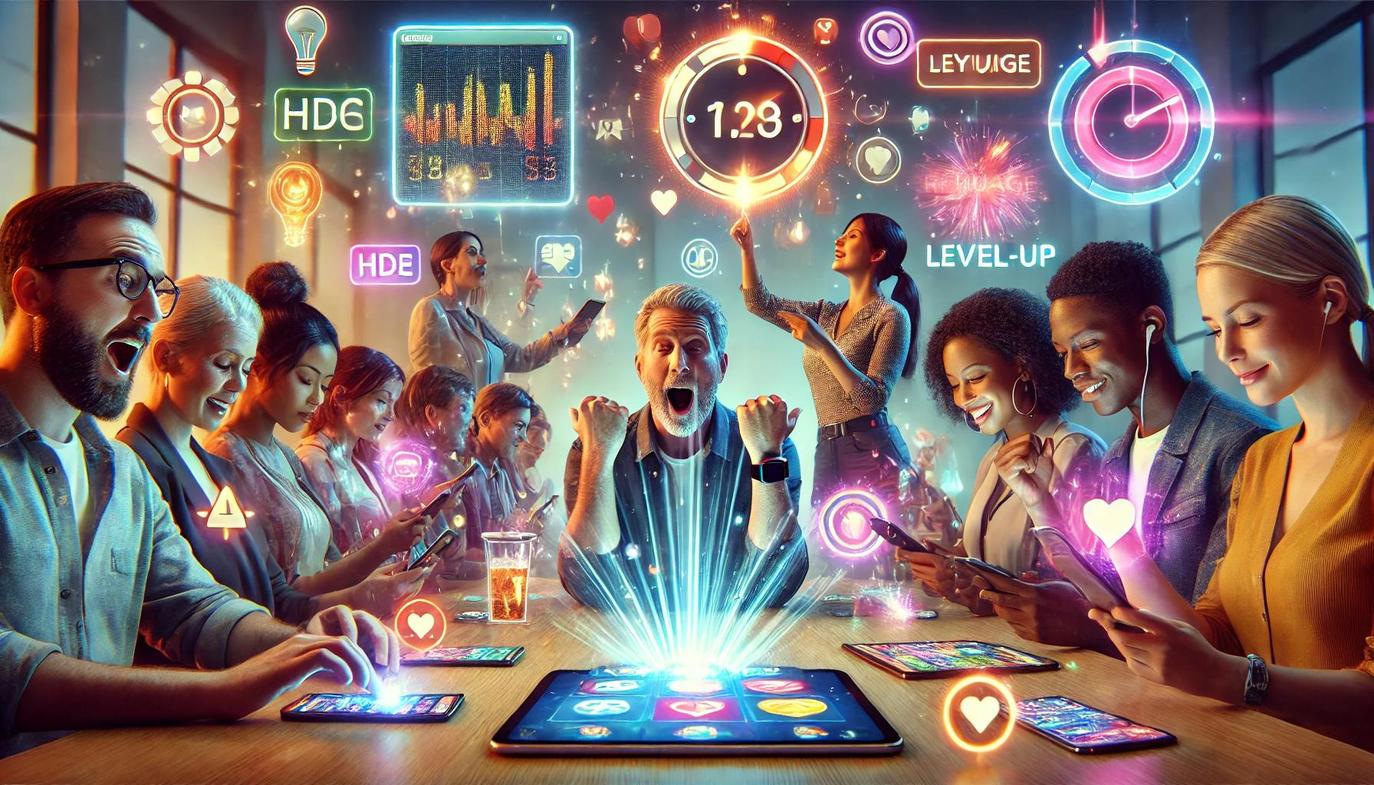It’s not just about winning — it’s about feeling seen, making progress, and staying hooked
Why Digital Rewards Just Work
Ever felt that tiny hit of joy when you unlock a new badge, finish a level, or see a “+10 XP” pop up? You’re not alone — and it’s not random.
Online rewards — points, ranks, virtual prizes — work because they tap into something deep in the brain: the craving for progress.
Whether it’s a fitness app, a shopping platform, or your favorite mobile game, rewards give us structure, feedback, and motivation. And in the MENA region, where mobile usage is sky-high and apps compete for attention, gamification is everywhere.
The Science Behind It
Let’s break it down simply:
- Dopamine Loop. Every time you get a reward — even a tiny one — your brain releases dopamine. It feels good. So you come back.
- Progress Triggers Motivation. A visible bar or level makes your effort feel real. You’re not just using an app — you’re getting somewhere.
- Surprise Keeps Us Engaged. Variable rewards (like mystery boxes or surprise bonuses) are more addictive than predictable ones. This is why games — and even learning apps — often include surprises.
- Status Feels Good. Leaderboards, rare badges, or limited-time rewards trigger pride and competition. Even if there’s no real prize, being “top 10” means something.
Where We See It Every Day
In the Gulf and across MENA, reward systems are built into everyday platforms:
- E-commerce apps offer points and tiered memberships
- Food delivery services give badges for “top reviewer” or “loyal customer”
- Banking apps reward users for saving habits
- Fitness apps show streaks and weekly goals
Even learning platforms like Noon Academy or Taleb give users badges, progress bars, and trophies for participation. It’s not just play — it’s productivity with a twist.
The Gameification of… Everything
What used to be a gaming thing is now a design strategy. From education to finance to health, gamification boosts user engagement and loyalty.
Even live casino games use these tricks — offering mini-bonuses for daily check-ins, visual level-ups, or social challenges like “win with a friend.” It’s not about gambling more — it’s about staying emotionally invested.
Platforms like Arab casinos also build entire experiences around progression: unlockable avatars, milestone badges, or exclusive rooms for top-tier players. These extras keep users returning — even when the stakes are low.
Why We Still Fall for It
Because at the end of the day, people love feeling seen and rewarded. Even when the reward is virtual, the impact feels real.
- Got a badge? You’re special.
- Leveled up? You’re better than before.
- Top of the leaderboard? You matter here.
These signals — visual, fast, and emotionally sticky — build routine. And that’s what makes users come back tomorrow.
So… Is It All Manipulation?
Not exactly. Smart gamification can be a win-win. If it motivates you to learn, save money, stay active, or enjoy content mindfully — that’s a positive loop.
Problems only begin when the goal is unclear, the rewards are too random, or apps trick you into spending more without transparency. That’s why ethical design matters.
Good platforms — including responsible Arab casinos — now include tools for time tracking, spending limits, and transparent odds. Progress should feel exciting, not exhausting.
Final Thought
Digital rewards aren’t going away — they’re becoming the new normal. And that’s okay, as long as we know how they work and why they matter.
Whether you’re collecting fitness points, unlocking new ranks in live games, or just enjoying that “Achievement Unlocked” buzz — it’s all part of how we stay motivated in the digital world.
Just don’t forget: you’re in control of the game, not the other way around.
